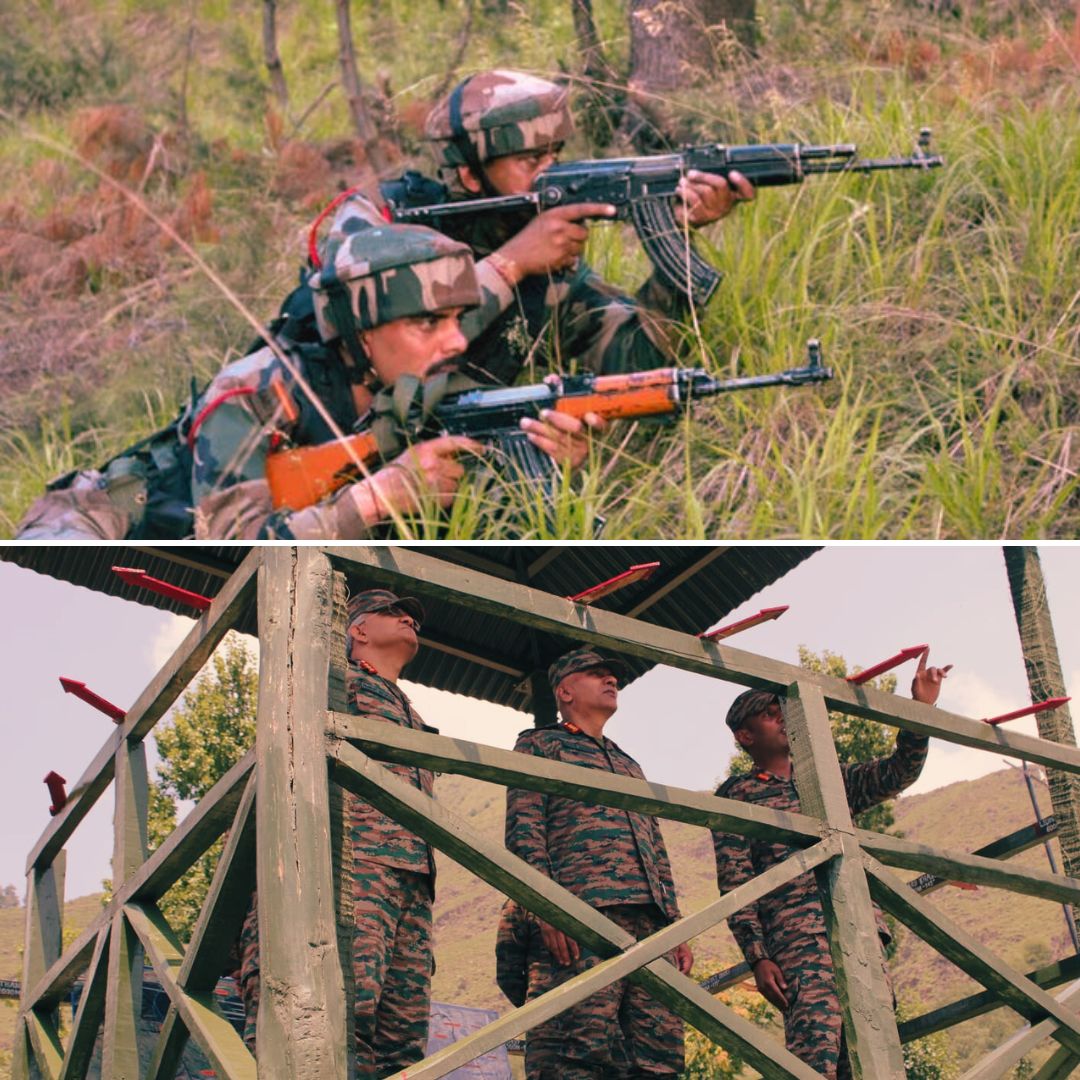Three terrorists were killed during a fierce encounter with security forces in the Lidwas area near Dachigam National Park, Harwan, on the outskirts of Srinagar, Jammu and Kashmir, on Monday, July 28, 2025. The joint anti-terror operation, codenamed “Operation Mahadev,” was conducted by the Indian Army, Jammu and Kashmir Police, and the Central Reserve Police Force (CRPF), acting on vital intelligence inputs regarding militant movement in the Mulnar area.
The encounter led to an intense firefight following which security forces confirmed the neutralisation of all three terrorists. Combing operations remain ongoing to ensure no further threats persist in the region.
Intense Firefight in the Perilous Terrain of Harwan
The operation commenced early Monday morning after intelligence agencies pinpointed the presence of terrorists in the thickly wooded and mountainous region of Mulnar near Dachigam National Park. Recognising the potential threat to civilian lives and the sensitive environment, joint teams of the Indian Army’s Chinar Corps, Jammu and Kashmir Police, and CRPF swiftly cordoned off the area to prevent any escape.
As the forces advanced cautiously through the dense forest, gunfire erupted, indicating hostile contact with the militants. An official statement from the Army read, “Three terrorists have been neutralised in an intense firefight. The operation is ongoing with combing activities underway.” Sources close to the operation revealed that the terrorists were heavily armed and fired upon the forces to evade capture, resulting in a prolonged engagement until the assailants were killed.
Initial investigations suggest that the slain militants could be affiliated with Lashkar-e-Taiba or allied terror outfits, suspected of involvement in the recent deadly Pahalgam attack which shocked the region. The authorities are meticulously sifting through evidence and conducting forensic examination to confirm their identities and understand their network. Reinforcements and additional surveillance units have been deployed to secure the region and prevent any resurgence of militancy.
Context and Background: A Strategic Push Against Terrorism
This encounter is emblematic of the intensified ongoing anti-terror operations across Jammu and Kashmir amidst a spate of recent violent incidents targeting civilians and security personnel. Operation Mahadev forms part of a broader strategy to dismantle terror infrastructure, including active militants and their support networks such as Over Ground Workers (OGWs) and logistics handlers. The rugged terrain surrounding Dachigam National Park, while ecologically sensitive, has unfortunately become a hideout for insurgents due to its difficult accessibility, challenging security operations.
Since 2019, there has been a paradigm shift in counter-terrorism efforts focusing not just on neutralising terrorists but also on isolating their support systems, cutting financial and logistical supply chains, and improving intelligence gathering.
Joint operations involving the Indian Army, Jammu and Kashmir Police, and paramilitary forces have yielded significant success, but challenges remain due to the complex socio-political fabric and geography. The recent Pahalgam attack prompted enhanced focus and swift action, with Monday’s encounter representing a critical effort to restore stability and assure local communities of their safety.
The Logical Indian’s Perspective
We commend the bravery and swift response of our security forces who put their lives on the line to safeguard citizens and uphold peace.
It is imperative to complement robust security action with long-term strategies that address the root causes of militancy – such as political disenfranchisement, economic deprivation, and social alienation. Establishing sustainable peace requires patience, empathy, and sincere dialogue between all stakeholders, including local communities, governance, and civil society.
The cycle of violence and counter-violence must be broken by nurturing trust, promoting communal harmony, and investing in education and development in the region. True victory lies in restoring the hope and normalcy for Kashmir’s youth and families.
OP MAHADEV – Update
— Chinar Corps🍁 – Indian Army (@ChinarcorpsIA) July 28, 2025
Three terrorist have been neutralised in an intense firefight. Operation Continues.#Kashmir@adgpi@NorthernComd_IA pic.twitter.com/5LToapGKuf












